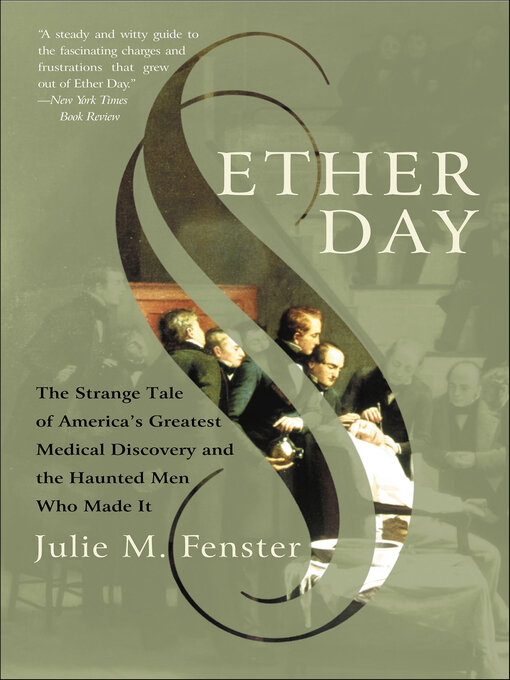A fascinating and entertaining look at the men behind the first surgical use of anesthesia—and the price they paid for their breakthrough.
On Friday, October 16, 1846, only one operation was scheduled at Massachusetts General Hospital....
That day in Boston, the operation was the routine removal of a growth from a man's neck. But one thing would not be routine: instead of using pulleys, hooks, and belts to subdue a patient writhing in pain, this crucial operation would be the first performed under a general anesthetic. No one knew whether the secret concoction would work. Some even feared it might kill the patient.
This engrossing book chronicles what happened that day and during its dramatic aftermath. In a vivid history that is stranger than fiction, Ether Day tells the story of the three men who converged to invent the first anesthesia—and the war of ego and greed that soon sent all three men spiraling wildly out of control.

